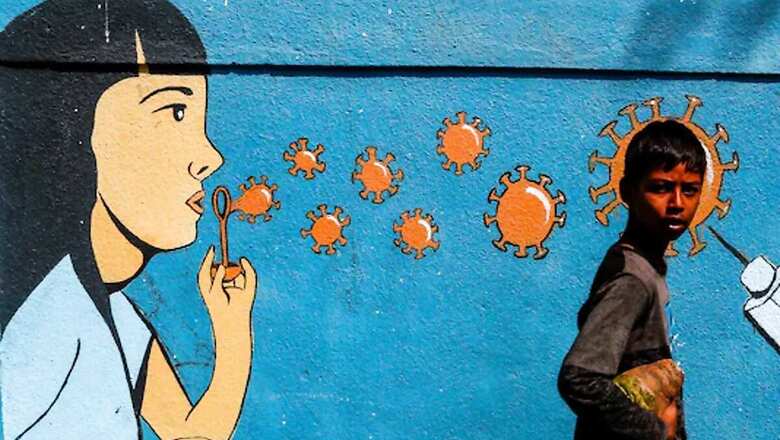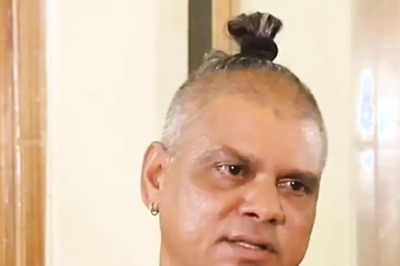
views
The highly transmissible Delta variant of SARS-CoV-2 has mutated further to form the ‘Delta plus’ or ‘AY.1′ variant. The new Delta plus variant has been formed due to a mutation in the Delta or B.1.617.2 variant, first identified in India and one of the drivers of the deadly second wave. According to Public Health England, 63 genomes of Delta (B.1.617.2) with the new K417N mutation have been identified so far on the global science initiative GISAID. In its latest report on coronavirus variants, updated till last Friday, the health agency said Delta plus was present in six genomes from India as of June 7.
Here’s deconstructing the latest variant and its effects for you:
What we know so far
One of the emerging variants is B.1.617.2.1 also known as AY.1 characterized by the acquisition of K417N mutation, Vinod Scaria, clinician and scientist at Delhi’s CSIR-Institute of Genomics and Integrative Biology (IGIB), tweeted on Sunday. The mutation, he said, is in the spike protein of SARS-COV-2, which helps the virus enter and infect the human cells. The variant frequency for K417N is not much in India at this point in time. The sequences are mostly from Europe, Asia and America, Scaria wrote on Twitter. The earliest sequence of this genome was found in Europe in late March this year.
How does it react to medication?
Though there is no indication yet of the severity of the disease due to the new variant, Delta plus is resistant to the monoclonal antibody cocktail treatment for COVID-19 recently authorised in India. The cocktail of Casirivimab and Imdevimab recently received emergency-use authorization in the country from the Central Drugs Standard Control Organisation. Drug majors Roche India and Ciplas have priced the antibody cocktail at a steep Rs 59,750 per dose.
Similar to antibodies which are proteins that the body naturally produces to defend itself against the disease, monoclonal antibodies are artificially created in a lab and tailor-made to fight the disease they treat. Casirivimab and Imdevimab are monoclonal antibodies that are specifically directed against the spike protein of SARS-CoV-2, and designed to block the virus’ attachment and entry into human cells.
Scaria also indicated the mutation may be associated with the ability to escape the immune response against the virus. Allaying fears, immunologist Vineeta Bal noted that while there may be some setback in the use of commercial antibody cocktail due to the new variant, resistance to the therapy is not an indication of higher virulence or severity of a disease.
How transmissible is the new variant?
How transmissible this new variant is will be a crucial factor to determine its rapid spread or otherwise, Bal, guest faculty at the Indian Institute of Science Education and Research, Pune, said. She also noted that the quality and quantity of neutralising antibodies, responsible for defending cells from pathogens, generated in the individual infected with the new variant is unlikely to be affected because of the mutation.
Thus in individuals catching infection with the new variant, it may not be a matter worth worrying, she added. Pulmonologist and medical researcher Anurag Agrawal concurred. There is no cause of concern due to the new variant in India as of now, Agrawal, the director of CSIR-IGIB, told PTI.
Current status
The Council of Scientific and Industrial Research – National Chemical Laboratory (CSIR-NCL), is studying Covid samples from Ratnagiri and Sindhudurg, to investigate if there are any traces of the Delta-plus variant. Earlier reports had confirmed six cases that tested positive for the Delta plus variant. As of now Sindhudurg and Ratnagiri are reporting a higher positivity rate and an increasing weekly growth rate of 13.06 and 9.03%, respectively, from June 7-13. These districts also account for the top two districts with the highest percentage of active Covid-19 cases.
Read all the Latest News, Breaking News and Coronavirus News here.


















Comments
0 comment